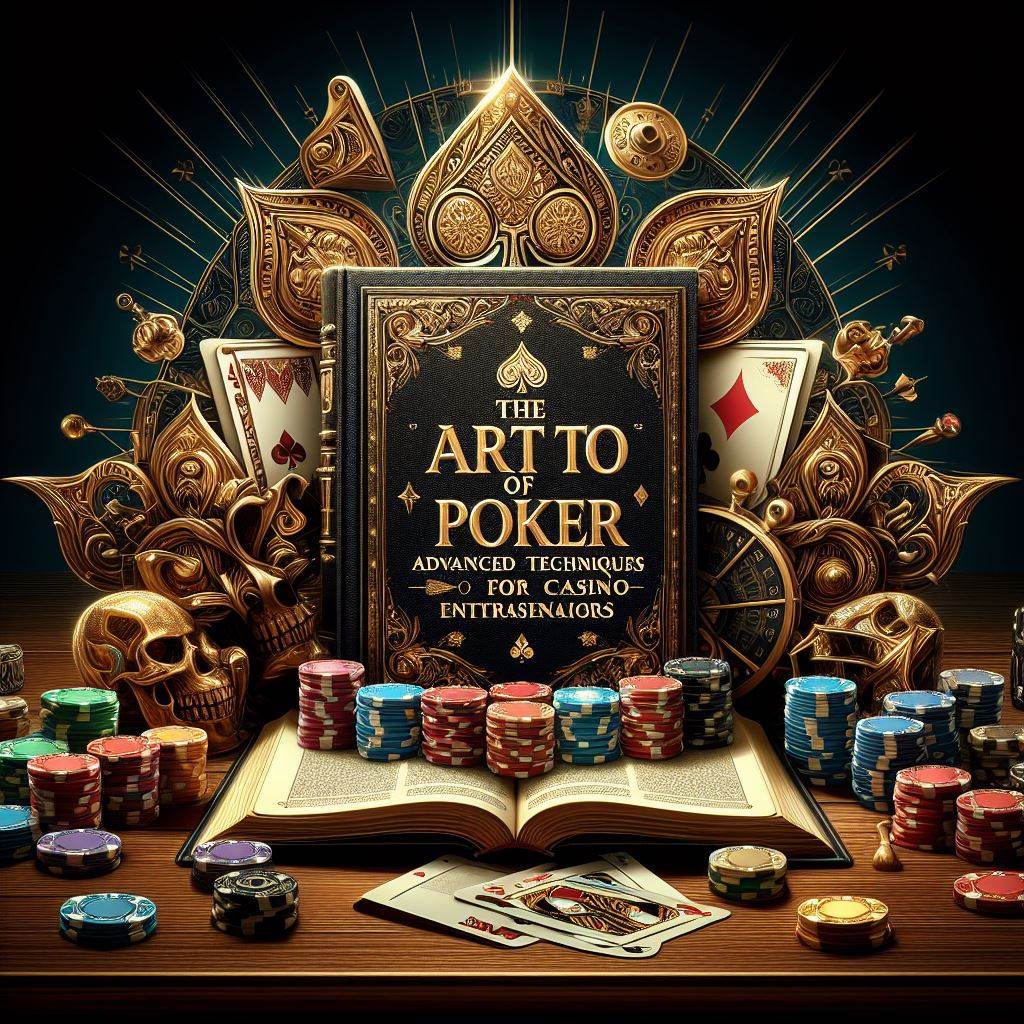Poker is not just a game of chance; it’s a complex battle of wits, requiring mastery of both cards and minds. For those who frequent casinos with aspirations to elevate their game, Techniques for Casino Enthusiasts mastering advanced poker techniques is crucial. This article delves into sophisticated strategies that can help casino enthusiasts not only compete but also excel at the poker table.
Advanced Hand Selection
Understanding which hands to play and from which positions is fundamental for any poker player, but advanced hand selection goes beyond basic starting hand charts. It involves adjusting your range based on the game dynamics and the tendencies of your opponents. For example, Techniques for Casino Enthusiasts in a loose game where many players are entering the pot, tightening up your opening hands can be advantageous. Conversely, in a tight game, expanding your range to include more speculative hands can capitalize on the conservative nature of your opponents.
The Concept of Pot Odds and Expected Value
Advanced poker players must be adept at calculating pot odds and expected value on the fly. Pot odds represent the ratio of the current size of the pot to the cost of a contemplated call. Understanding this helps determine whether calling in a particular situation is profitable in the long run. Expected value (EV) takes this a step further by quantifying how much money a particular decision is expected to win or lose on average, helping players make the most profitable decisions over time.
Reading Opponents and Exploiting Tendencies
Advanced poker involves a deep analysis of opponents’ behavior to identify patterns and tendencies. This might include noting how often an opponent raises pre-flop, their betting sizes, and their approach to post-flop play. Once these patterns are understood, Techniques for Casino Enthusiasts they can be exploited. For instance, if an opponent tends to fold to any bet following a missed flop, then bluffing in these scenarios becomes more profitable.
Bluffing and Semi-Bluffing Techniques
Bluffing is an art that involves more than just lying about your hand. It’s about telling a credible story that your hand is stronger than it actually is. Advanced bluffing techniques involve knowing when the story you tell through your bets and actions aligns with the board texture and the perceived ranges of your opponents. Semi-bluffing, where you bluff with a hand that has the potential to improve, adds another layer, allowing you to win the pot either by your opponents folding or by hitting your draw.
Positional Awareness
Position is a critical component in poker strategy. Being in a late position (closer to the dealer button) provides more information, as you can see how many players enter the pot and how they act before you make your decision. Advanced players use this information to adjust their play, playing more hands from a late position and fewer from an early position. They exploit positional advantage not only by playing a wider range of hands but also by controlling the size of the pot.
Psychological Warfare
At higher levels of play, psychological strategies become paramount. This involves not only masking your own tells but also intentionally giving off false tells to mislead opponents about the strength of your hand. Moreover, managing your own emotional responses — staying calm under pressure and not tilting after bad beats — is crucial to maintain decision-making clarity.
Bankroll Management
Advanced poker strategy isn’t just about how you play your cards; it’s also about managing your money effectively. Proper bankroll management ensures that you play at stakes that your finances can support, which prevents you from playing scared or going broke. It allows you to withstand the natural variance in the game without devastating consequences.
Conclusion
Mastering advanced poker techniques offers casino enthusiasts the tools to not just participate in the game but to dominate it. By refining hand selection, understanding mathematical concepts like pot odds and EV, reading opponents, employing psychological tactics, and managing their bankroll, players can dramatically improve their performance at the poker table. These skills, once honed, turn the game from a gamble to a disciplined practice of skill and strategy.
Baca Juga: From Beginner to Pro: A Comprehensive Guide to Casino Poker
